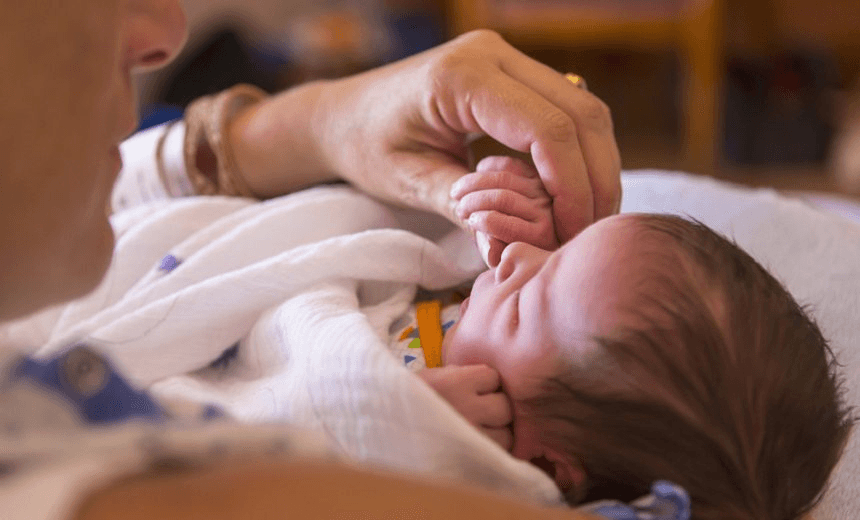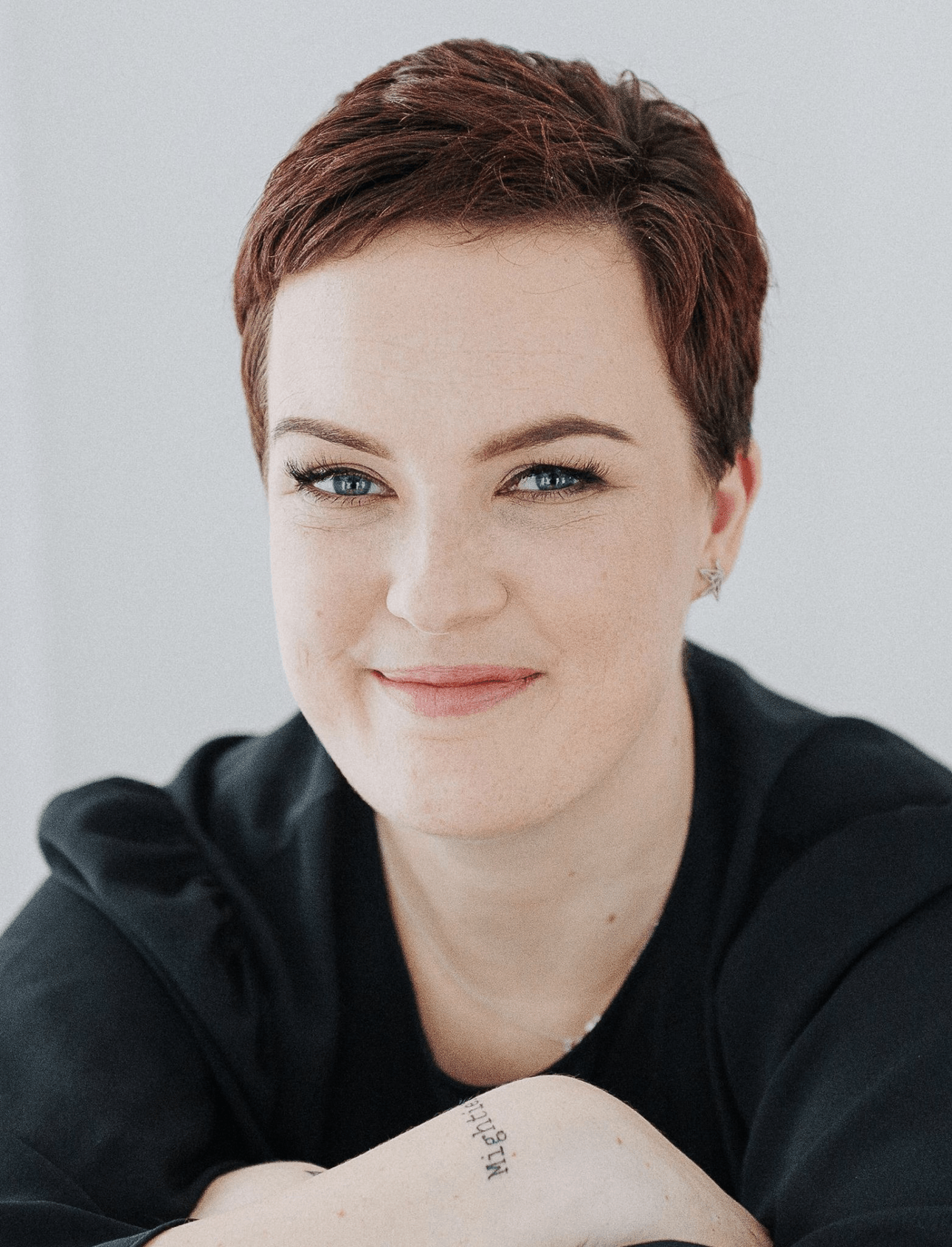New Zealand still sits below the OECD average for Paid Parental Leave. Francesca Jones knows what it’s like to live in a place with better entitlements for parents – she asks if we are making the right choices here.
Having a newborn baby is one of those life events you can never really prepare for, no matter how hard you try. Babies are hard work, mothers can sometimes be hormonal, and partners are often trying to hold down a full-time job. Everyone is tired. It is a stressful time for a lot of relationships. So, what if there was a way to make it easier?
Despite recent increases to Paid Parental Leave, New Zealand sits barely above the OECD average of 17.7 weeks. Mothers in New Zealand receive 18 weeks paid leave, while fathers may receive no paid leave at all. By comparison, Denmark has a generous parental leave system – a more equitable one. Mothers are entitled to 18 weeks paid leave, starting four weeks before their due date. They then have a further 32 weeks available, to be shared between them and their co-parent. All of this is paid, at full wage then eventually at benefit equivalent.
Ah, the Nordic countries, every liberal’s go-to comparison. The shining beacons of democracy when so much of the world seems so dark. If only we could be more like Denmark, like Norway, like Sweden. Then we could have all the nice shiny things. I didn’t choose to focus on Denmark because it is an obvious choice. I chose Denmark because I live there, and I’ve experienced the benefits of its parental leave first hand. These benefits are so much more than just the money.
Our daughter, my second child, was born just over a year after we arrived. Because I was at language school instead of working I did not qualify for maternal leave, but my husband was eligible for the parental leave. I’d had a difficult labour with my first child: haemorrhaging, and a uterine infection, and then our son had reflux. Following this experience our expectations of the newborn period were pretty low.
So, it was a huge weight off my shoulders to think my husband would be able to spend an extended period at home with us and our second baby. Like most newly arrived immigrants our social network was small, so we knew we would have to rely on each other.
We had no idea just how much I would need his support.
My labour was bad, catastrophically so. My recovery, physically, would take a long time. Mentally it would take even longer. It was a huge shock not just to us, but also to our older child. I was not well enough for him to be brought in, or for my husband to leave hospital, for three whole days.
We had never prepared my son for a scenario like this. I had not prepared myself to be away from him for so long either. The first few weeks of my daughter’s life were an exceptionally turbulent time. We were very grateful that when my husband did return to work, he was able to do so part-time, working three days a week for 20 weeks.
Some of the benefits of his time at home are obvious. My husband and daughter got to spend more time together than many working parents get in those first precious months. Times were tough, but my husband got to be there for cuddles, for smiles, and to hand me the TV remote when I got stuck under a baby in a milk coma.
When we talk about parental leave, we are usually just discussing the care of a newborn baby. Surprise, many babies have older siblings! One of the less obvious benefits was how much my son gained from having his father around during that time.
On returning to spend a night in hospital with me, my husband explained to our son that he had to go, because ‘Mum and the baby need me.’ My son’s reply – ‘I need you’. He was right.
Over the coming months boisterous play (in my son’s humble opinion – the best kind of play) was definitely a Dad duty. Luckily for him, Dad was around for plenty of it.
There is a strong association between sleep deprivation and poor maternal mental health. Unless you are extremely lucky, nights with a newborn are always going to be tough. It is exhausting, especially for those still recovering physically from the effects of pregnancy and labour. Studies have suggested that actively working to reduce sleep deprivation amongst high risk mothers during the first few days of their babies’ lives lowers the incidence of post-natal mood disorders. Once post-natal depression has taken hold it becomes very difficult to tease out correlation and causation, but it is established that mothers with post-natal depression experience more sleep disturbances.
How could we support both mother and baby in this scenario? How about we don’t leave them at home alone all day? Give mum a chance to rest and baby another caregiver for those times when she needs a break.
I had periods after my daughter’s birth where I felt okay, grateful to be alive, and other periods where I felt really not okay. It made a huge difference that I had the ability to tuck myself up in bed for a rest even when the baby was awake.
My husband returned to work full-time when our daughter was five months old. By five months I’d had a chance to recover physically, my son had had a chance to adapt to a younger sibling, and our daughter was older and able to be without me for longer periods.
It isn’t just about us though; this scenario worked well for my husband’s employer too. My husband worked less hours, but he was better rested, and his home life was functioning better than it would have if he’d returned to work immediately after the birth of our baby. There is not much point turning up to work if you are not in a position to do your job because you’re exhausted.
A degree of sleep deprivation is to be expected for most families with a newborn. A study published in the American Journal of Men’s Health in 2012 showed that fathers’ of newborns were at a 39% increased risk of a workplace accident. If you have an office job, inattention at work may get you in your boss’s bad books, but if your job requires you to work with heavy machinery then the consequences can be deadly.
[sam id=”9″ codes=”true”]
This is one of the many reasons we need to stop dismissing Paid Parental Leave as some cushy, liberal dream. Fathers for years have soldiered on, going back to work and getting up 2am to help change nappies – or just refusing to change nappies at all. Many families do manage but instead of expecting people to soldier on, we should recognise that many have paid a price, whether it be in the form of workplace injuries, or in familial breakdown, or mental health problems for the main caregiver. And having a newborn is not the only time our lives get metaphorical hand grenades tossed into the mix. Wouldn’t it be amazing to have a society that recognised that there are times in our lives that work, however important it may be, actively hinders our ability to cope?
The Council of Trade Unions have recently requested all workers be entitled to paid Domestic Violence leave, because they, like so many, believe the fewer barriers there are to fleeing violence, the better.
Recently, The Spinoff Parents published a piece about protecting children – Think Big for Kids. As Thalia so accurately said, we need to start thinking big, because as a nation we have some big problems. New Zealand has a child poverty rate of 29%, with a severe poverty rating of 9%. In comparison, Denmark’s child poverty rate is 3%. Yes, you read that right – 3%. Are we really going to put this down to a difference in GDP? Denmark’s poverty rate is a reflection of decades of political decisions that recognised that childhood is a time in people’s lives where they are a net cost to the tax payer, but that that cost is worth paying if you want a society of functioning, educated adults.
So yes, taxes here are really high. So high I look at New Zealand’s high earner tax rates and laugh, or at least I would laugh if the consequences were not so serious. There are trade-offs for the high tax rate though, especially during those times of life where we cost tax payers more. Some of the other things we have benefited from are:
- A well-funded equitable system of early-childhood education from age one to six years. Lower income earners qualify for a subsidy so if you have a low income your children are entitled to attend for free.
- A childhood benefit payout to all but the highest income earners. For a child aged up to two years old this is close to NZ$4000 annually.
- A well-funded public health system.
- Well-funded public infrastructure. Housing is dry and healthy. To make up for small apartments there are playgrounds everywhere. You just have to be hardy enough to use them in winter.
We can’t snap our fingers overnight and change to Denmark’s economic model. What we can do is be honest with ourselves. We don’t have to continue living the way we do. Living here in Denmark it is clear to me that supporting families in crisis and improving child poverty rates is possible. We do this by supporting all families, whatever their stage of life, and whatever their needs and means.
Improving Paid Parental Leave is one thing we could do that would support families. Tax cuts might be a tempting election promise, but are we considering the full cost? We can improve the lives of our nation’s children, if we decide to do it together. It might mean difficult decisions, but let us be clear – it is a choice.
Francesca Jones is the mother of two young kids, and is currently living in Denmark. Having nothing better to do with All The Free Time she enjoys as a stay-at- home mum, she decided to write a blog. She has ambitions to get a full night’s rest again one day. In the meantime her interests include coffee. You can find her at her blog My Flatpack Life, or on her Facebook page.
Follow the Spinoff Parents on Facebook and Twitter.




